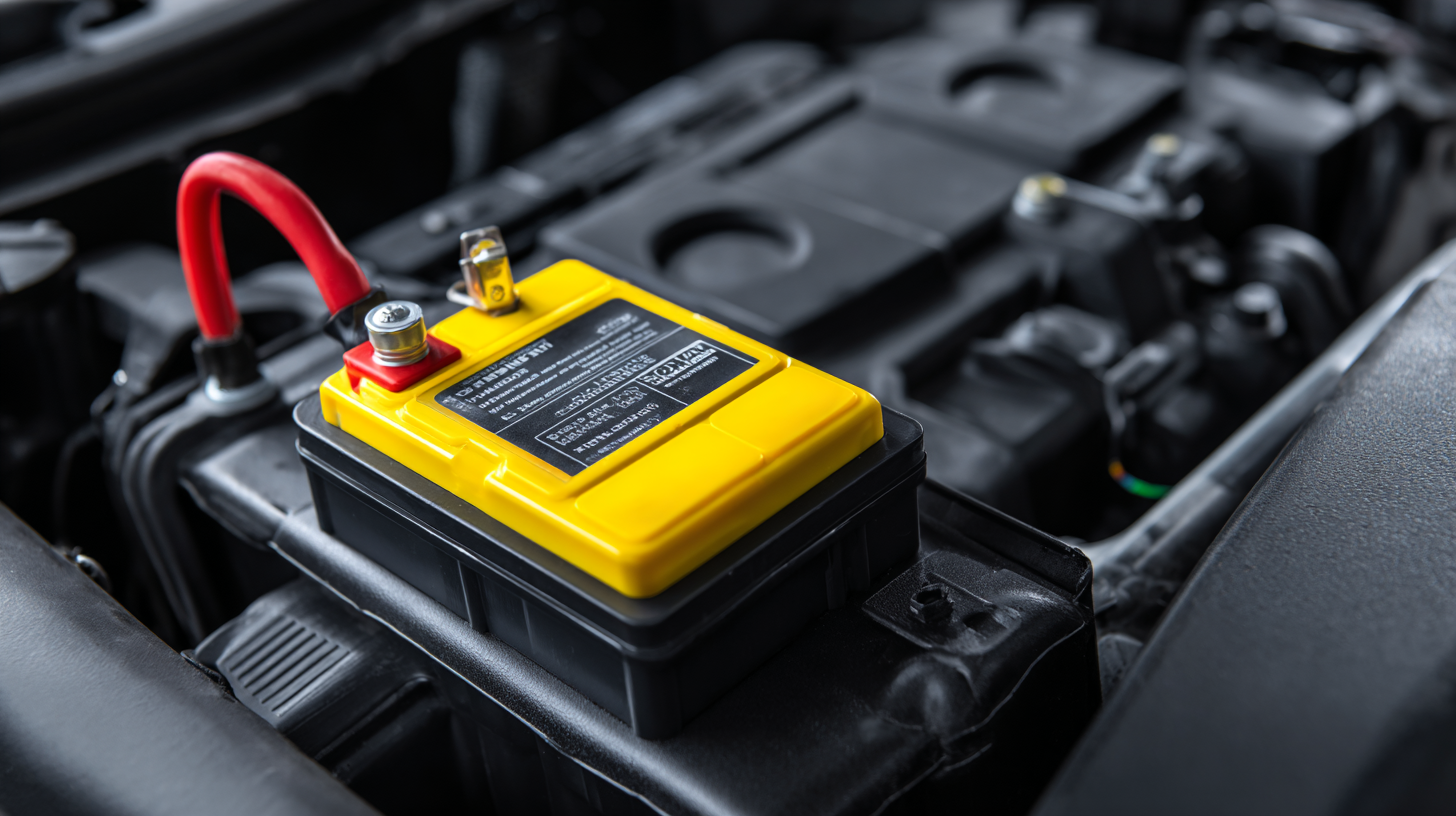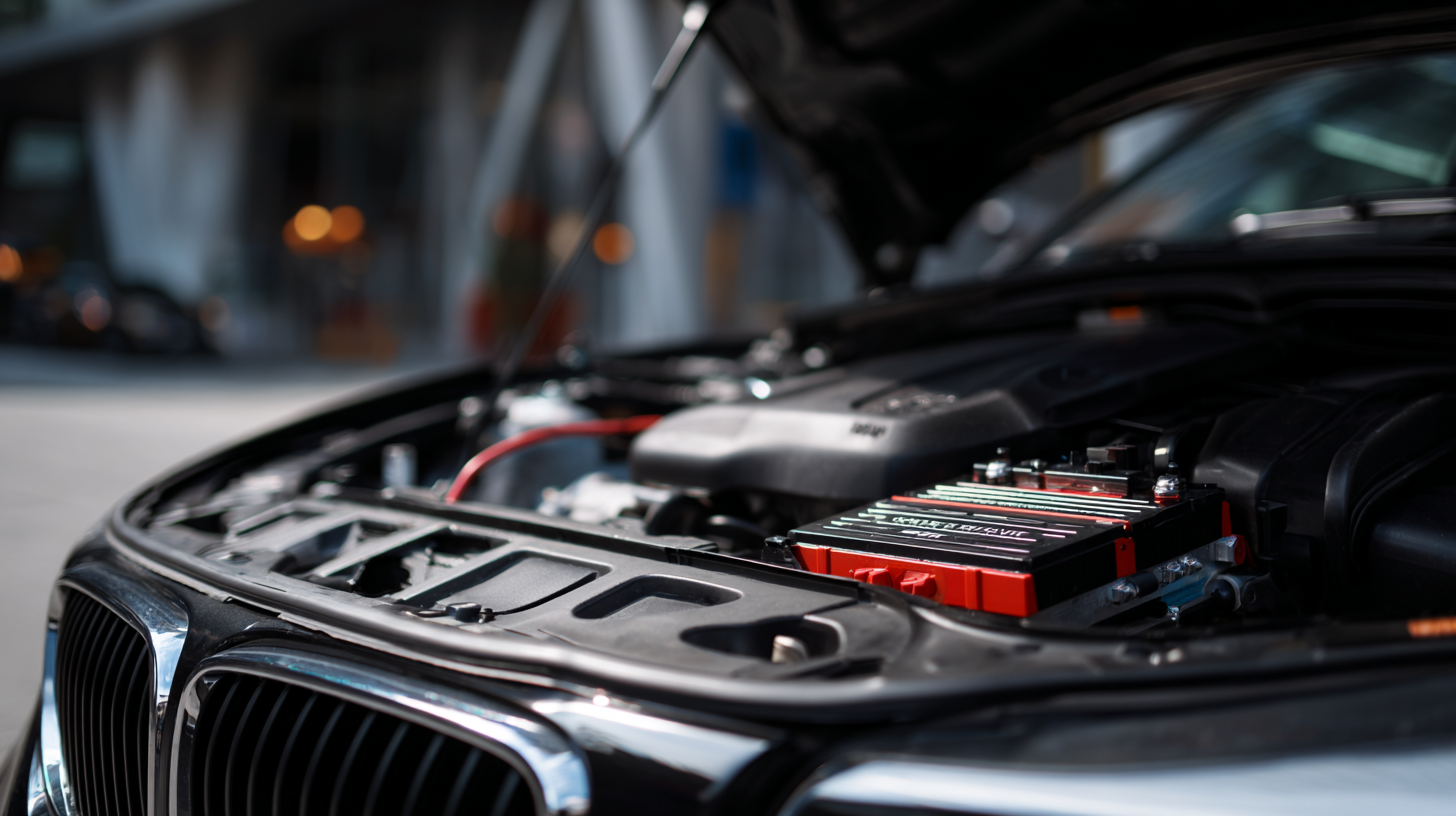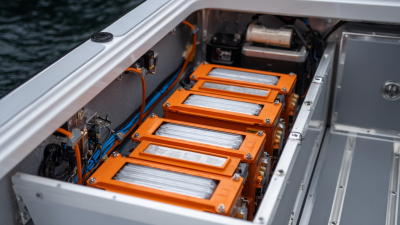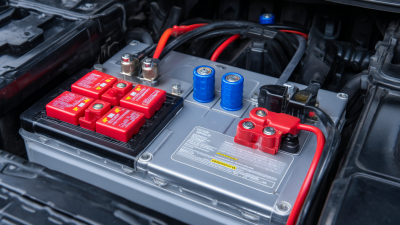Factory Tour
Top 5 Benefits of Using Automobile Start Lithium Batteries for Your Vehicle
The automotive industry is undergoing a transformative shift with the rise of advanced battery technologies, particularly the unparalleled advantages offered by Automobile Start Lithium Batteries. According to a recent report by the International Battery Association, the market for lithium batteries in automotive applications is projected to grow by over 20% annually through 2025. This surge is largely driven by the performance benefits inherent in lithium technology, which promises enhanced efficiency and durability for vehicle owners.

Experts in the field, such as Dr. Emily Chen, a leading researcher in battery technology, emphasize the significance of these advancements, stating, "Automobile Start Lithium Batteries not only provide superior cold cranking performance but also have a longer lifespan compared to traditional lead-acid batteries." This assertion highlights the critical role that lithium batteries play in optimizing vehicle performance while meeting the increasing demands for sustainability and efficiency in modern automobiles.
In light of these transformative benefits, this article will explore the top five advantages of adopting Automobile Start Lithium Batteries for your vehicle, illustrating how they can fundamentally enhance the driving experience while contributing to environmental goals. As the automotive landscape evolves, understanding the impact of lithium technology becomes essential for both vehicle manufacturers and consumers alike.
The Advantages of Lithium Batteries in Automotive Start Applications
The advantages of lithium batteries in automotive start applications are becoming increasingly apparent as technology evolves. First and foremost, lithium batteries provide exceptional energy density compared to traditional lead-acid batteries. This means they can store more energy in a smaller, lighter package, which is particularly beneficial for modern vehicles that are designed for efficiency and performance. The reduced weight also contributes to better fuel economy and improved handling, making lithium batteries an attractive option for auto manufacturers and consumers alike.

In addition to their lightweight nature, lithium batteries boast a longer lifespan and faster charging capabilities. Unlike conventional batteries that tend to suffer from a short cycle life, lithium batteries can endure many more charge and discharge cycles before needing replacement. This longevity translates to lower maintenance and replacement costs over time. Moreover, their ability to recharge quickly means that drivers can enjoy a nearly instant start, enhancing the overall convenience of vehicle operation. As a result, lithium batteries are rapidly becoming the go-to choice for automotive start applications, aligning with the industry's push towards innovation and sustainability.
Enhanced Performance Metrics of Lithium Batteries Compared to Traditional Lead-Acid
Lithium batteries are quickly becoming the preferred choice for vehicle starters due to their enhanced performance metrics compared to traditional lead-acid batteries. One significant advantage is their ability to maintain longer runtimes, as demonstrated by the recent introduction of lithium-ion technology in Montreal that allows trucks to operate for up to 12 hours without idling. This not only improves efficiency but also contributes to lower emissions, a key consideration in today’s environmentally conscious market.
In addition to extended runtimes, lithium batteries also offer superior reliability and reduced downtime. This aligns with the latest innovations in battery technology, which emphasize enhanced performance through advanced designs and material combinations. The continuous development in electrolyte additives further indicates that lithium batteries can outpace their lead-acid counterparts in both performance and lifespan.
**Tips for Improving Battery Performance:**
- Regularly check and maintain battery connections to ensure optimal energy transfer.
- Avoid deep discharges, as lithium batteries perform best when kept within a certain charge range.
- Consider advanced charging solutions that monitor and adjust charging cycles, enhancing the longevity and reliability of the battery.
Impact of Lithium Technology on Vehicle Weight and Fuel Efficiency Improvements
The impact of lithium technology on vehicle weight and fuel efficiency improvements is profound and increasingly crucial in today's automotive landscape. Lithium batteries are significantly lighter than traditional lead-acid batteries, contributing to the overall reduction of vehicle weight. This is particularly important as automotive lightweighting strategies emphasize aerodynamics and engine efficiency to maximize fuel economy. For instance, the use of lithium-ion batteries in vehicles, as seen in various studies, has shown to enhance fuel efficiency metrics, with some vehicles achieving up to 28% further distance on a liter of fuel.
Moreover, data from industry reports indicate that the adoption of advanced battery technologies, such as lithium, can lead to substantial improvements in vehicle performance. A recent study highlighted that a shift toward lithium batteries not only improves fuel economy but also aligns with environmental targets by reducing overall emissions. In the context of regulatory pressures to meet fuel economy standards, this technology is indispensable. As the industry continues to innovate, the integration of lightweight lithium batteries will play a pivotal role in advancing sustainable mobility solutions and achieving a lower-emission future.
Cost-Effectiveness Analysis: Long-Term Savings with Lithium Battery Systems
The rising popularity of lithium batteries in the automotive industry can be attributed to their cost-effectiveness, particularly when analyzed over the long term. Research from the Advanced Energy Research Organization indicates that lithium batteries can last up to 3-5 times longer than traditional lead-acid batteries. This extended lifespan means fewer replacements and reduced maintenance costs for vehicle owners. Additionally, the decreased frequency of battery replacements significantly lowers overall carbon emissions associated with battery production and disposal, aligning with contemporary ecological goals.
Moreover, lithium batteries are lighter and more energy-dense than their counterparts, enhancing vehicle efficiency. According to a report from the International Energy Agency, electric vehicles using lithium battery systems can achieve a reduction in energy costs by up to 50% compared to conventional vehicles over their lifetime. The initial investment in lithium technology may be higher, but the potential for long-term savings—both in fuel and maintenance—makes them a viable option for eco-conscious consumers seeking to minimize expenses. As electric vehicles become increasingly common, the transition to lithium battery systems is poised to yield significant economic benefits, underscoring their role in the future of automotive technology.

Environmental Benefits of Transitioning to Lithium Batteries in the Automotive Sector
Transitioning to lithium batteries in the automotive sector presents significant environmental benefits, aligning with global efforts to mitigate climate change. According to a report from the International Energy Agency, electric vehicles (EVs) powered by lithium batteries can reduce greenhouse gas emissions by up to 60% compared to traditional gasoline vehicles over their lifetime. By minimizing reliance on fossil fuels, lithium batteries help lower the carbon footprint while supporting cleaner air initiatives in urban areas.
Additionally, lithium batteries are made from abundant materials, which are increasingly being sourced sustainably. A study by the World Economic Forum highlights that advancements in lithium-ion battery recycling technologies can recover more than 90% of materials used in battery production. This not only reduces waste in landfills but also promotes a circular economy within the automotive industry.
Tips for consumers looking to transition to electric vehicles include researching the battery's lifecycle and environmental impact. Additionally, consider supporting manufacturers who prioritize responsible sourcing and sustainable practices in their production processes. By making informed choices, consumers can contribute to a greener future while enjoying the benefits of advanced lithium battery technology.
Related Posts
-

Real-World Applications of the Best Car Start Lithium Battery Across Industries
-

Exploring Innovations in Auto Lifepo4 Start Battery at the 138th Canton Fair 2025
-

Unlock Maximum Power and Efficiency with 16s LFP Boat Batteries for Your Next Maritime Adventure
-

Unlocking the Power of Auto Lifepo4 Start Batteries: A Deep Dive into Their Advantages and Features
-

How to Choose the Right 72V LiFePO4 Battery for Your Golf Cart: Essential Insights and Tips
-

Crafted Excellence: The Global Rise of China's Premier Wall-Mounted Energy Storage Solutions







